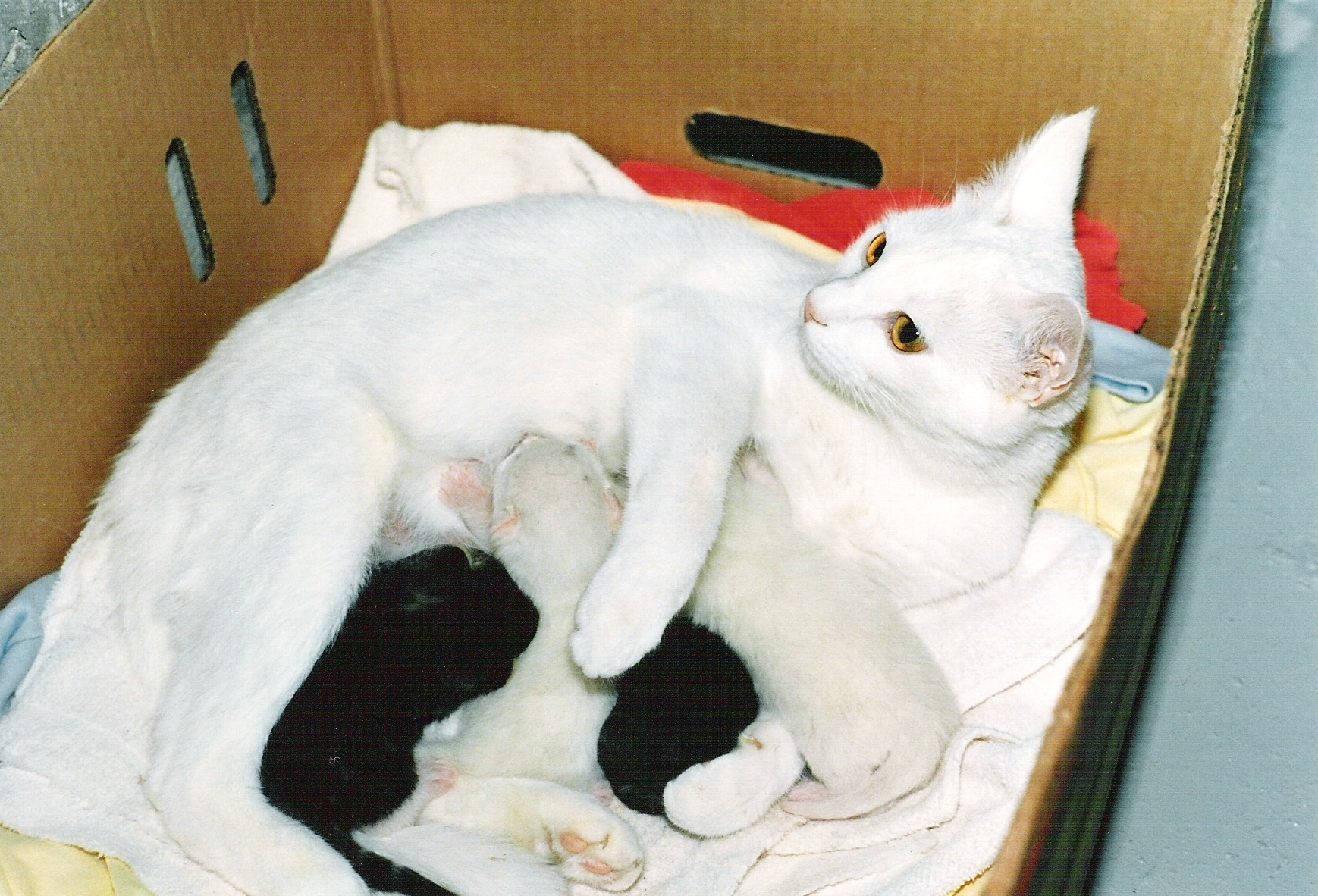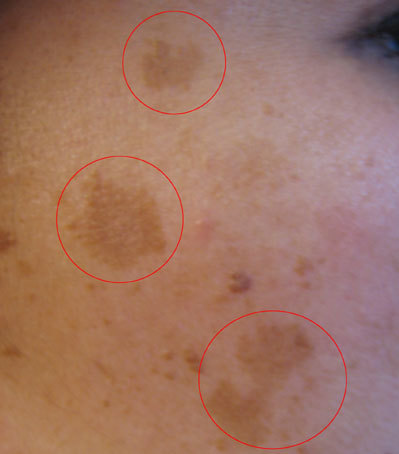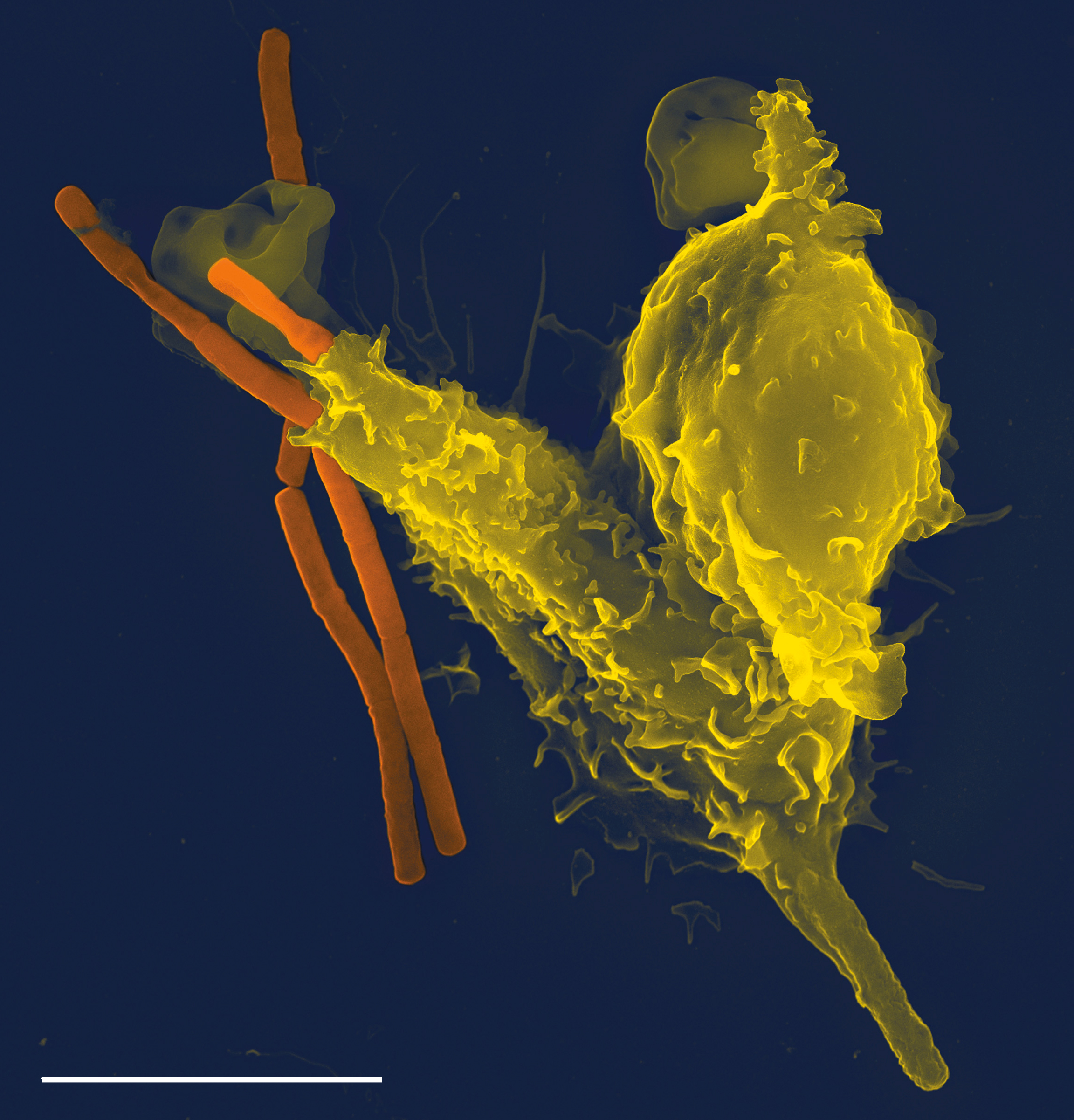|
Ecological Immunology
Ecoimmunology or Ecological Immunology is the study of the causes and consequences of variation in immunity. The field of ecoimmunology seeks to give an ultimate perspective for proximate mechanisms of immunology. This approach places immunology in evolutionary and ecological contexts across all levels of biological organization. Classical, or mainstream, immunology works hard to control variation (inbred/domestic model organisms, parasite-free environments, etc.) and asks questions about mechanisms and functionality of the immune system using a reductionist method. While ecoimmunology originated from these fields, it is distinguished by its focus to explain natural variation in immune functions. Multiple institutes engage in ecoimmunological research, such as the Center for Immunity, Infection and Evolution at the University of Edinburgh and the Max Planck Institute for Immunoecology and Migration. The US National Science Foundation has funded a Research Coordination Networ ... [...More Info...] [...Related Items...] OR: [Wikipedia] [Google] [Baidu] |
Immunity (medical)
In biology, immunity is the capability of multicellular organisms to resist harmful microorganisms. Immunity involves both specific and nonspecific components. The nonspecific components act as barriers or eliminators of a wide range of pathogens irrespective of their antigenic make-up. Other components of the immune system adapt themselves to each new disease encountered and can generate pathogen-specific immunity. Immunity is a complex biological system that can recognize and tolerate whatever belongs to the self, and to recognize and reject what is foreign (non-self). Innate and adaptive Innate Immunity First off, the immune system is a system in the body of animals that enables animals to avoid or limit many infections caused by pathogens. Pathogens are disease causing agents, causing a wide range of illnesses. As for Diseases it's when structure of an organism is negatively affected other than external injury. Both diseases and pathogens affect the immune system causing ill ... [...More Info...] [...Related Items...] OR: [Wikipedia] [Google] [Baidu] |
Philosophical Transactions Of The Royal Society B
''Philosophical Transactions of the Royal Society B: Biological Sciences'' is a biweekly peer-reviewed scientific journal published by the Royal Society. The editor-in-chief is John Pickett (Cardiff University). Overview Each issue covers a specific area of the biological sciences. Each issue aims to create an original and authoritative synthesis, often bridging traditional disciplines, which showcases current developments and provides a foundation for future research, applications and policy decisions. Each issue is edited by one or more expert guest editors. The themes fall into one of four general categories: * Cell and Development * Health and Disease * Environment and Evolution * Neuroscience and Cognition All articles become freely accessible one year after their publication date. History ''Philosophical Transactions of the Royal Society'' was established in 1665 by the Royal Society and is the oldest scientific journal in the English-speaking world. Henry Oldenburg ... [...More Info...] [...Related Items...] OR: [Wikipedia] [Google] [Baidu] |
Isle Of Rum
An isle is an island, land surrounded by water. The term is very common in British English. However, there is no clear agreement on what makes an island an isle or its difference, so they are considered synonyms. Isle may refer to: Geography * Isle (river), a river in France * Isle, Haute-Vienne, a commune of the Haute-Vienne ''département'' in France * Isle, Minnesota, a small city in the United States * River Isle, a river in England Arts, entertainment, and media * ''Interdisciplinary Studies in Literature and Environment'' (or ''ISLE''), a journal published by Oxford University Press for the Association for the Study of Literature and Environment *''The Isle'', 2017 film with Conleth Hill * ''The Isle'', a 2000 South Korean film directed by Kim Ki-duk * ''Isle'' (album) Other uses * International Society for the Linguistics of English (ISLE), a learned society of linguists See also * Aisle, a space for walking, e.g., in a church, classroom, theatre, supermarket, etc. * Isl ... [...More Info...] [...Related Items...] OR: [Wikipedia] [Google] [Baidu] |
Lactation
Lactation describes the secretion of milk from the mammary glands and the period of time that a mother lactates to feed her young. The process naturally occurs with all sexually mature female mammals, although it may predate mammals. The process of feeding milk in all animals (including humans) is called ''nursing'', and in humans it is also called ''breastfeeding''. Newborn infants often produce some milk from their own breast tissue, known colloquially as witch's milk. In most species, lactation is a sign that the female has been pregnant at some point in her life, although it can happen without pregnancy. Nearly every species of mammal has nipples; except for monotremes, egg-laying mammals, which instead release milk through ducts in the abdomen. In only one species of mammal, the Dayak fruit bat from Southeast Asia, is milk production a normal male function. ''Galactopoiesis'' is the maintenance of milk production. This stage requires prolactin. Oxytocin is critical for t ... [...More Info...] [...Related Items...] OR: [Wikipedia] [Google] [Baidu] |
Pregnancy
Pregnancy is the time during which one or more offspring develops ( gestates) inside a woman's uterus (womb). A multiple pregnancy involves more than one offspring, such as with twins. Pregnancy usually occurs by sexual intercourse, but can also occur through assisted reproductive technology procedures. A pregnancy may end in a live birth, a miscarriage, an induced abortion, or a stillbirth. Childbirth typically occurs around 40 weeks from the start of the last menstrual period (LMP), a span known as the gestational age. This is just over nine months. Counting by fertilization age, the length is about 38 weeks. Pregnancy is "the presence of an implanted human embryo or fetus in the uterus"; implantation occurs on average 8–9 days after fertilization. An '' embryo'' is the term for the developing offspring during the first seven weeks following implantation (i.e. ten weeks' gestational age), after which the term ''fetus'' is used until birth. Signs an ... [...More Info...] [...Related Items...] OR: [Wikipedia] [Google] [Baidu] |
Immune System
The immune system is a network of biological processes that protects an organism from diseases. It detects and responds to a wide variety of pathogens, from viruses to parasitic worms, as well as cancer cells and objects such as wood splinters, distinguishing them from the organism's own healthy tissue. Many species have two major subsystems of the immune system. The innate immune system provides a preconfigured response to broad groups of situations and stimuli. The adaptive immune system provides a tailored response to each stimulus by learning to recognize molecules it has previously encountered. Both use molecules and cells to perform their functions. Nearly all organisms have some kind of immune system. Bacteria have a rudimentary immune system in the form of enzymes that protect against virus infections. Other basic immune mechanisms evolved in ancient plants and animals and remain in their modern descendants. These mechanisms include phagocytosis, antimicrobial pe ... [...More Info...] [...Related Items...] OR: [Wikipedia] [Google] [Baidu] |
Tsimané
The Tsimané, also known as the Tsimane' or Chimane, are an indigenous people of lowland Bolivia, living chiefly in the Beni Department municipalities of San Borja, San Ignacio de Moxos, Rurrenabaque, and Santa Ana del Yacuma. The Tsimané are the main residents of the T’simane Council Territory ( es, Territorio del Consejo T’simane) and the Pilón Lajas Reserve. They are primarily a subsistence agriculture culture, although hunting and fishing contribute significantly to many of the settlements' food supply. Those Tsimané living in the Reserve are affiliated with the multiethnic Consejo Regional Tsimane Moseten (CRTM), which holds the title to the Reserve as a Native Community Land or TCO. Name The Tsimané are also known as the Achumano, Chamano, Chimane, Chimanis, Chimanisa, Chimnisin, Chumano, Nawazi-Moñtji, and Ramano people."Chiman ... [...More Info...] [...Related Items...] OR: [Wikipedia] [Google] [Baidu] |
Extrinsic Mortality
Extrinsic mortality is the sum of the effects of external factors, such as predation, starvation and other environmental factors not under control of the individual that cause death. This is opposed to intrinsic mortality, which is the sum of the effects of internal factors contributing to normal, chronologic aging, such as, for example, mutations due to DNA replication errors, and which determined species maximum lifespan. Extrinsic mortality plays a significant role in evolutionary theories of aging, as well as the discussion of health barriers across socioeconomic borders. __TOC__ Evolutionary theories of aging Extrinsic mortality is implicit in both classical theories of aging and non-classical studies of aging. In both cases, its existence causes a selective pressure for either longer lifespans and later reproductive periods or shorter lifespans and earlier reproductive periods. Classical theories of aging include: * Mutation Accumulation Theory of Aging - Because extrinsi ... [...More Info...] [...Related Items...] OR: [Wikipedia] [Google] [Baidu] |
Thomas McDade
Thomas Wesley McDade is an American biological anthropologist. He is a Fellow of the American Association for the Advancement of Science, the National Academy of Sciences, and the American Academy of Arts and Sciences. Early life and education McDade was born in Des Plaines, Illinois and graduated from Pomona College with a degree in biosocial anthropology. Following this, he completed his PhD in anthropology from Emory University and postdoctoral fellowship at the Carolina Population Center. Career Upon completing his fellowship, McDade joined the faculty at Northwestern University (NU), in 2000. Early in his tenure at NU, McDade was the recipient of an Presidential Early Career Award for Scientists and Engineers for "undertaking important research that may ultimately improve child health through a better understanding of the social and environmental factors that affect the development of the human immune system." Following this, McDade developed a minimally invasive finger-pric ... [...More Info...] [...Related Items...] OR: [Wikipedia] [Google] [Baidu] |
Adaptive Immune System
The adaptive immune system, also known as the acquired immune system, is a subsystem of the immune system that is composed of specialized, systemic cells and processes that eliminate pathogens or prevent their growth. The acquired immune system is one of the two main immunity strategies found in vertebrates (the other being the innate immune system). Like the innate system, the adaptive immune system includes both humoral immunity components and cell-mediated immunity components and destroys invading pathogens. Unlike the innate immune system, which is pre-programmed to react to common broad categories of pathogen, the adaptive immune system is highly specific to each particular pathogen the body has encountered. Adaptive immunity creates immunological memory after an initial response to a specific pathogen, and leads to an enhanced response to future encounters with that pathogen. Antibodies are a critical part of the adaptive immune system. Adaptive immunity can provide l ... [...More Info...] [...Related Items...] OR: [Wikipedia] [Google] [Baidu] |
Innate Immune System
The innate, or nonspecific, immune system is one of the two main immunity strategies (the other being the adaptive immune system) in vertebrates. The innate immune system is an older evolutionary defense strategy, relatively speaking, and is the dominant immune system response found in plants, fungi, insects, and primitive multicellular organisms (see Beyond vertebrates).. The major functions of the innate immune system are to: * recruit immune cells to infection sites by producing chemical factors, including chemical mediators called cytokines * activate the complement cascade to identify bacteria, activate cells, and promote clearance of antibody complexes or dead cells * identify and remove foreign substances present in organs, tissues, blood and lymph, by specialized white blood cells * activate the adaptive immune system through antigen presentation * act as a physical and chemical barrier to infectious agents; via physical measures such as skin and chemical measures such a ... [...More Info...] [...Related Items...] OR: [Wikipedia] [Google] [Baidu] |
Social Ecology (academic Field)
Social ecology studies relationships between people and their environment, often the interdependence of people, collectives and institutions. Evolving out of biological ecology, human ecology, systems theory and ecological psychology, social ecology takes a “broad, interdisciplinary perspective that gives greater attention to the social, psychological, institutional, and cultural contexts of people-environment relations than did earlier versions of human ecology.” The concept has been employed to study a diverse array of social problems and policies within the behavioural and social sciences. Conceptual orientation As described by Stokols, the core principles of social ecology include: * Multidimensional structure of human environments—physical & social, natural & built features; objective-material as well as perceived-symbolic (or semiotic); virtual & place-based features * Cross-disciplinary, multi-level, contextual analyses of people-environment relationships spannin ... [...More Info...] [...Related Items...] OR: [Wikipedia] [Google] [Baidu] |






